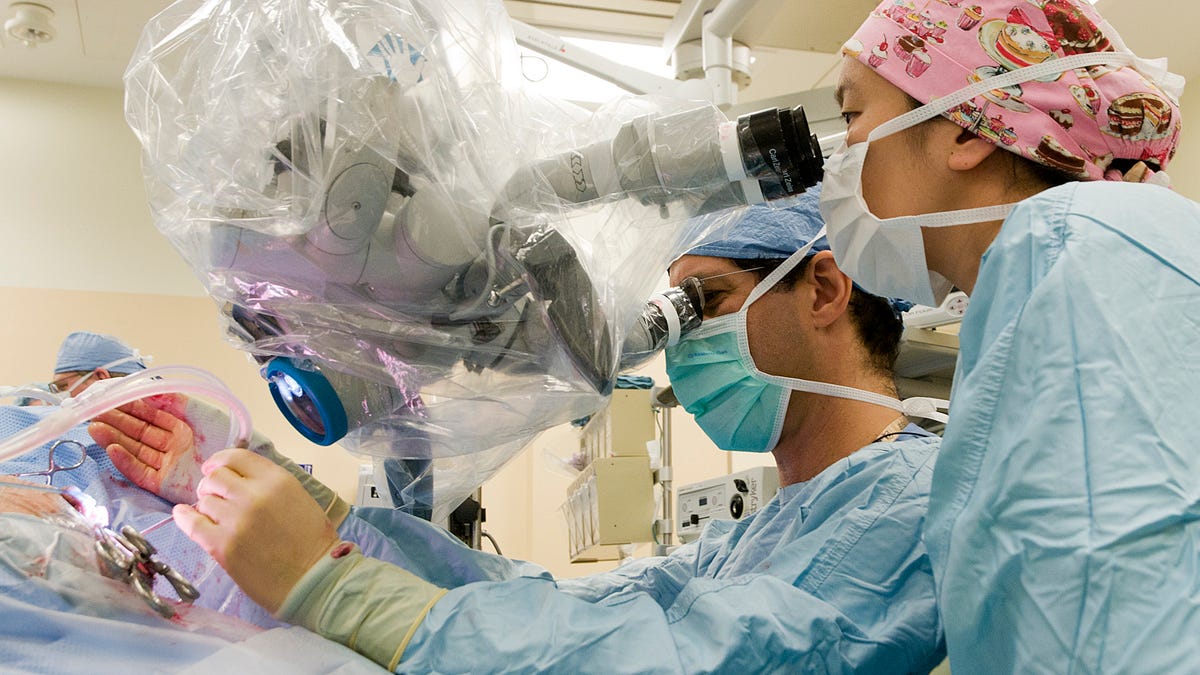Cochlear implant could help wearers find balance
Researchers at the University of Washington have successfully implanted a device they hope will cancel the symptoms of vertigo experienced by those with Meniere's disease.

For those who have never suffered from a bout of vertigo, the condition might evoke thoughts of Alfred Hitchock and a dizzying fear of heights. Those people would be misguided.
Imagine instead that, for anywhere from 20 seconds to 2 minutes, you are both falling and spinning, and yet you are also lying perfectly still in bed. It is not only nauseating and terrifying, but the disconnect is also completely frustrating.
Millions of people around the world are thought to suffer from one of a number of balance disorders, some of which are still poorly understood (do the problems stem from the ear, brain, or some combination of the two?). However, a new device could help those who suffer from one such problem, called Meniere's disease, avoid symptoms the moment an attack begins.
The implantable device consists of a cochlear implant and a processor with new software and electrode arrays designed by University of Washington researchers who specialize in head and neck surgery, signal processing, brainstem physiology, and vestibular neural coding.
It has been designed specifically to treat Meniere's disease--which affects an estimated 615,000 people in the U.S., typically between ages 40 and 60 and which typically affects one ear--because the disease is well understood. (The attacks result from rupturing of the inner-ear membrane, causing a sensation of spinning in the direction of the failing ear.)
The most common way for those with Meniere's to fight the symptoms of a vertigo attack is to lie very still for hours or, in severe cases, to elect for surgery that essentially shuts off that ear altogether, permanently affecting hearing and balance.
"We have a variety of existing treatments for Meniere's disease, and any time there's a variety it's because none of them are optimal," says Dr. Jay Rubinstein at UW's Department of Otolaryngology-Head and Neck Surgery, who himself has never experienced vertigo--"other than from drinking too much in college"--but who for years has seen first-hand how debilitating it can be. "In theory this is potentially an optimal therapy that could really change how we treat Meniere's."
The device, implanted last week in a 56-year-old patient who is the first of 10 to be involved in the first clinical trials, is essentially an override, Rubinstein explains. "It doesn't change what's happening in the ear, but it eliminates the symptoms while replacing the function of that ear until it recovers."
The processor lives behind the ear and transmits signals wirelessly to the implanted device almost directly beneath it in the temporal bone. The device responds by transmitting electrical impulses through three electrodes inserted into the superior semicircular, lateral semicircular, and posterior semicircular canals of the inner ear.
Because the design and surgical implantation of cochlear devices are already FDA-approved, the team was able to get approval for this variation in June, leapfrogging past researchers who have been working on other types of devices for years.
Its initial studies on primates showed that the device did not result in any loss of hearing or vestibular function, and if the team can demonstrate safety and functionality in the first 10-person trial, it will then study 50 to 100 patients to try to demonstrate efficacy and bring the device to market.
"Meniere's is not just a target in and of itself, but a stepping stone to get at other disorders," Rubinstein adds.
The first patient's device will be turned on when he returns to the lab November 4; the moment he experiences the first signs of vertigo, testing can truly begin.

